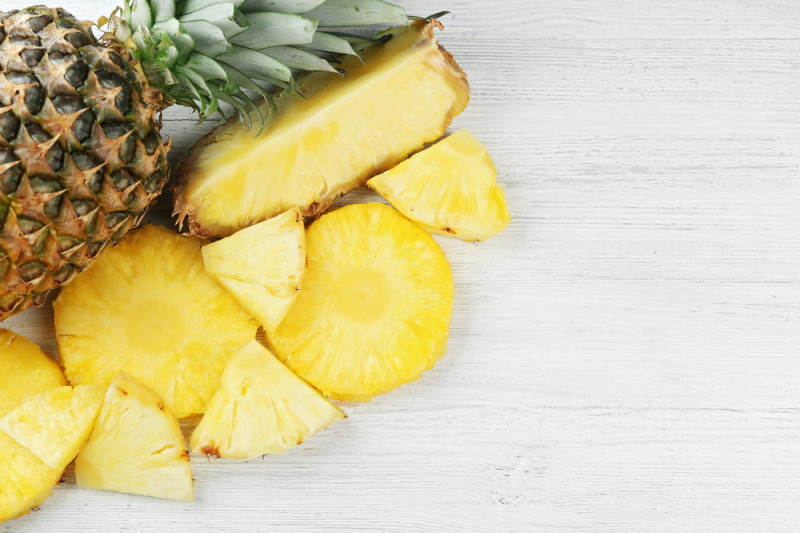Pineapple is not only a tasty addition to many dishes, but it’s also chock-full of essentials for a healthy diet.
Sarah Rivenburgh, RDN, registered dietitian at OhioHealth Mansfield Hospital specializing in oncology nutrition, said pineapple provides the body with key nutrients, vitamins, and bioactive compounds.
“It’s a really good source of vitamin C,” she told TODAY.com. “Your body can’t make it, so it has to get it from food. Pineapple can be a good way to get some of that vitamin C, especially if you’re not a fan of oranges.”
One cup of pineapple has more than 100 percent of the daily recommended intake of vitamin C and 10 percent of vitamin B6 for women. These antioxidants are important for your immune system.
“Vitamin C helps your body absorb plant sources of iron,” Rivenburgh said. “So as people are transitioning to more of a plant-based way of eating, sometimes having extra vitamin C can help your body absorb iron from foods like spinach or beans to make sure you’re not deficient in iron.”
 Vitamin C also protects the body from free radical damage, inflammation and may have the potential to prevent diseases such as cancer and heart disease. Other nutrients in pineapple include calcium, magnesium, iron, copper, manganese and folate. There’s no cholesterol and virtually no fat in the fruit.
Vitamin C also protects the body from free radical damage, inflammation and may have the potential to prevent diseases such as cancer and heart disease. Other nutrients in pineapple include calcium, magnesium, iron, copper, manganese and folate. There’s no cholesterol and virtually no fat in the fruit.
Rivenburgh says pineapple is great for maintaining healthy skin and for processes like collagen synthesis, healing wounds and tissue repair.
“It keeps you full longer, also,” she said. The insoluble fiber in pineapple helps keep bowel movements regular by adding bulk to stool and keeping the gut healthy. The fruit feeds the good bacteria in the microbiome and supports digestive health. The enzyme bromelain breaks down proteins and has anti-inflammatory properties.
Research shows that bromelain can help to remove dead skin from burns and relieve post-surgery or arthritis pain. It has also been suggested to have some anti-cancer effects, though more research is needed.
“That could be possible just because it does have anti-inflammatory properties,” Rivenburgh said. “So, if you’re having pain at your joints and this can potentially help decrease that inflammation.”
Pineapple is incredibly versatile, and for those craving a sweet treat, Rivenburgh suggests crushed pineapple as an ice cream topping or incorporating the fruit into a cake or bread. Fresh pineapple is often preferred for its higher vitamin C content, but canned pineapple is still a viable option.
“I always say eating any fruit or vegetable is better than no fruit or vegetables, so if you only have access to canned pineapple or you only like canned, it’s still perfectly acceptable to eat that,” Rivenburgh said. “You’re still going to get a good amount of nutrients from it.”
Despite its many benefits, some may experience mouth irritation due to the fruit’s acidity and bromelain content. Eating pineapple with a sprinkle of salt or with a dairy product can ease these effects, Rivenburgh said. But it’s important to distinguish these symptoms from an allergic reaction, which can include itching and swelling of the lips, throat and tongue.
To learn more about OhioHealth Cancer Care, click here.

